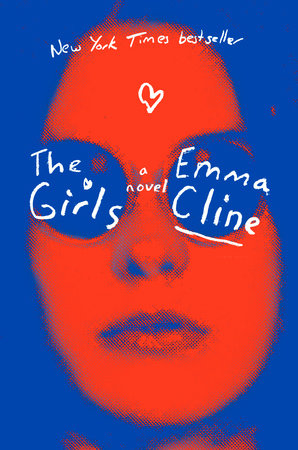lip lit: the girls

Emma Cline’s debut novel, The Girls, is a coming of age story set in extraordinary circumstances. Based on the true events of the Charles Manson family, The Girls follows Evie Boyd, a fourteen-year-old girl on the cusp of adolescence, as she is drawn into the inner circle of a soon-to-be-infamous cult.
The research that has gone into The Girls is incredible — few details stray from the actual Manson case, aside from a relocation to California — but it’s not historical fiction. Instead, Cline uses the time and setting to craft an enduring tale of girlhood. While the majority of the book is set in 1969, and possesses the dreamy echoes of a bygone era, Cline paints the details of the time lightly. She doesn’t get carried away with specifics, preferring to use the mood and tone to create a world that is distant, yet timeless.
The book is set in the present tense, narrated by a middle-aged Evie as she reflects on her time inside the cult. Cline is an exceptional stylist and uses this vantage point well. On numerous occasions her carefully crafted sentences unveil a depth of clarity and insight. It’s stunning to read, and more than once left me feeling as though Cline had described my own feelings with words I’ve been unable to find.
The novel begins when Evie is young, innocent and only just beginning to press against the boundaries of childhood and independence. She witnesses a group of girls with long, unkempt hair and is captivated by their freedom and careless sensuality. One girl captures Evie’s interest more than the others: Black-haired Suzanne with her unaffected attitude and dirty smock dress.
Evie is immediately bewitched by Suzanne and the other girls in the cult. She joins them on the ranch, enthralled by the way they share possessions, swim naked in the creek, and let their children roam wild.
At the centre of it all is Russell, who has a magnetic pull over the girls that Evie is both drawn into and repulsed by. She realises, with more fascination than repulsion, that all of the girls are sleeping with Russell. It’s not long before he begins making calculated advances on her, too. Evie is soon persuaded to perform unwanted sexual acts with the cult leader. It’s a perverse and upsetting scene — one of several in the book — coloured with Cline’s sharp insights into the male gaze and female vulnerability.
While we get to know fourteen-year-old Evie with great depth, her present-day portrayal remains lacking. You may, like me, be left with myriad questions about her life after her days in the cult ended. Cline doesn’t indulge those questions. Instead she uses present-day Evie as a tool to explore girlhood. Middle-aged Evie exposes the nuance of her younger counterparts, but does not develop much character in her own right.
Where Emma Cline shines is through her depictions of female friendships. At one point, she writes, ‘Girls are the only ones who can really give each other close attention’. The close attention Cline lends to female relationships is thrilling to read. From Evie’s evolving relationship with her childhood best friend to her romantic fascination with Suzanne, Cline endows every interaction between her female characters with nuance and meaning.
The Girls blurs the line between desiring and longing to be desired. Evie yearns for Suzanne while simultaneously wishing to possess Suzanne’s wild demeanour — does she want Suzanne, or does she want to be Suzanne? For an adolescent girl, desire is a complicated beast. Cline gives these relationships the power they warrant. Boys aren’t big players in this novel. Rather, they’re symptoms of the more powerful and complex dynamics playing out between the women.
Cline explores the cold, hard judgement that women place on one another as a place of conflict and commiseration. No one will understand you quite so well as another woman, but no-one can expose you quite so cruelly, either. Setting this against the gruesome events of the Charles Manson family allows Cline to heighten this cruelty substantially. It’s rare to be confronted with female aggression in literature, but The Girls captures the rough, violent edges of being a teenage girl with apparent ease.
The Girls is refreshingly honest, feminine and stunningly insightful. I can’t wait to see what Emma Cline does next. Until then, The Girls should be mandatory reading for anyone fascinated by what it means to grow up as a woman.

